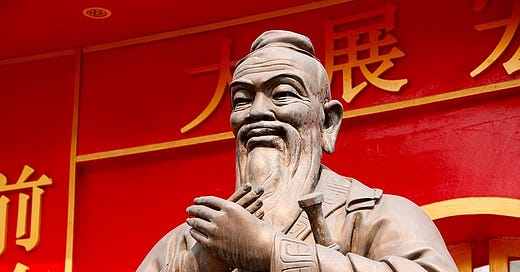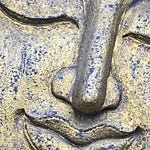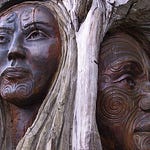In this lesson, you genuinely get a treat! We are studying an intellectual heavyweight considered the pinnacle of Chinese sages. His name is Master Kong, more commonly known as Confucius.
Confucius's teachings and philosophy underpin East Asian culture and society, remaining influential across China and East Asia to this day.
Confucius had was obsessed with the practicality of philosophy in both moral and ethical behavior. This lesson we deep-dive into how we can use his sage wisdom in our every day life.
Lesson Reading
Readings in Ethics: Moral Wisdom Past and Present. Chapter 6, pages 103-115.
Additional Resources
The Massachusetts Institute of Technology (MIT)
MIT offers a free copy of the entire work The Analects, you can access it HERE.
Discussion Questions
Discuss the qualities of a sage, referring to Laozi from Lesson 5 or Confucius from Lesson 6. Who would you call a sage, and why?
Confucius was extremely concerned with practical philosophy, especially in having ethical and intellectual individuals in positions of political power. How does Confucian ideals compare to the reality of politics in America? Explain.
Please like and share this lesson with anyone who may be interested! Listening and joining the course is 100% free!
“By three methods we may learn wisdom: First, by reflection, which is noblest; Second, by imitation, which is easiest; and third by experience, which is the bitterest.”
~Confucius
“It is easy to hate and it is difficult to love. This is how the whole scheme of things works. All good things are difficult to achieve; and bad things are very easy to get.”
~Confucius














Share this post